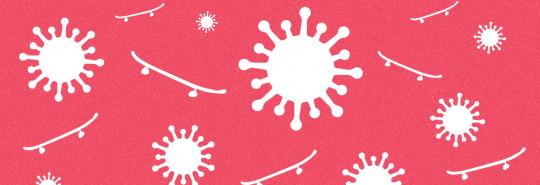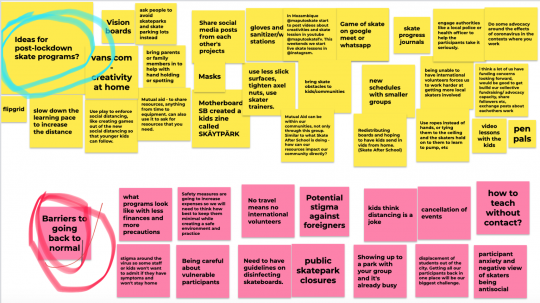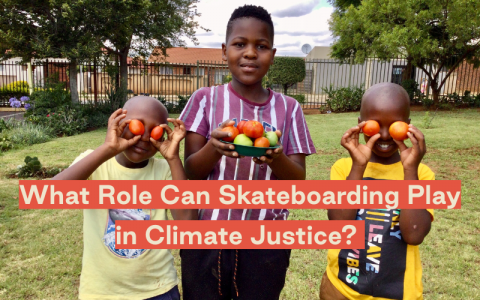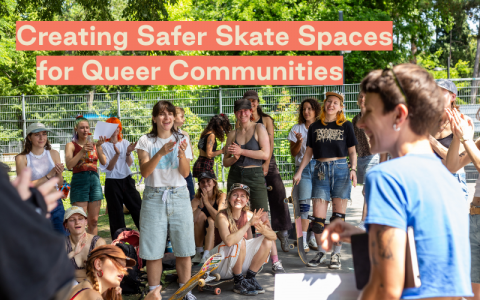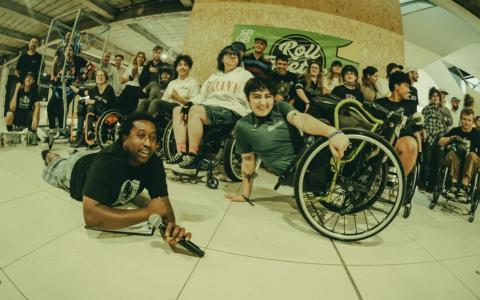For those of you planning to re-start your skateboarding programs as COVID restrictions are lifted, we’ve put together some ideas for limiting the risks related to the pandemic and keeping your participants safe.
Since the COVID-19 pandemic put much of the world into lockdown in mid-March, the Goodpush Alliance has been hosting regular webinar meetings for the social skateboarding community to share their challenges and responses related to Coronavirus. We’ve had 155 people from all over the world join these sessions, giving their input on the barriers and adaptations to stay connected to the communities and children/youth that we work with.
From these discussions we’ve put together a set of guidelines below on running safe skateboarding programs, while keeping in mind social distancing and hygiene.
Disclaimer: Each city/state/country has different rules, for example about how many people are allowed to gather, whether sports are allowed inside, if masks are required, etc. Regularly check and follow your local official guidelines related to social distancing, sport, and summer camps. Do not run skate programs unless your local regulations and COVID infection situation allow it.
Goodpush COVID Skate Program Guidelines
- 1. Social Distancing:
- Limit the number of participants/coaches in your sessions to allow for enough distancing (usually 1.5m/6ft minimum is recommended)
- Hold skate classes outdoors rather than indoors as this makes it harder for virus to spread
- If using public skateparks, run programs at non-busy times such as early morning
- Mark off the skate area with tape or cones to spread skaters widely across the space during lessons
- 2. Hygiene:
- Consider requiring everyone to wear face masks (cloth masks are proven to be effective and also environmentally friendly). A mask-making workshop can also be a fun activity.
- Have enough handwashing or hand sanitizer stations for skaters to use before, during and after the session
- Ensure each participant has their own water bottle with their name on it
- 3. Teaching Without Contact – Some Ideas:
- If you are working with beginners, have them practice tricks on carpet or grass so it's safer and easier for them to try on their own
- Get kids to use balance boards to build their balance
- Get new skaters used to the ramps by running up/down them and practicing falling (with safety gear) before they get on boards
- Use ropes or railings for people to hold onto while learning new tricks (and sanitize the railings regularly)
- Have kids from same families help each other, for example holding hands/arms if they are beginners (also maybe involving parents and showing them how to help)
- 4. Equipment:
- If possible, have participants bring their own safety equipment and boards, or find a way to provide these items to each participant to avoid shared items
- Sanitize shared boards, safety equipment and any other shared supplies between sessions
- Wash safety gear or air it out for 72 hours between different users
- 5. First Aid
- Ensure anyone doing first aid sanitizes their hands first
- Consider having one designated first aider/helper per session, who is the only person that can help someone who falls down (to limit contact between participants)
- 6. Be Prepared and Adapt as Needed:
- Before you start your programs, finalize the new COVID rules for your program, put them down in a clear policy document and share the policy with all staff/volunteers, parents, participants
- Check in regularly with staff/volunteers, participants, parents about how the sessions are going, and if there are any new concerns or ideas to make the skate programs safer
Here are some other useful resources and examples to check out:
- Safe Skate Guidelines from Women Skate the World (WSTW) – Nanja from WSTW has been attending the Goodpush COVID webinars and has put together this super useful set of ideas and recommendations to use during skate sessions. They go way more in-depth than this blog post so we really recommend you take a look!
- Infographic Guidelines from Skateboard England – a super visual poster with some basic COVID guidelines that you can print and put up in your space, or use as inspiration to make your own posters (great activity to do with the kids too!)
- Example of Covid Skate Program Policy from Maputo Skate
- Watch the Goodpush COVID Webinar recordings here
Special thanks to all the great social skateboarding projects that have attended our webinars and contributed to this list of ideas, such as Women Skate the World (Netherlands), Maputo Skate (Mozambique), Free Movement (Greece), Square State Skate (USA), Skate Like a Girl (USA), Tiger Skate Club (Canada), Pushing Myanmar, Bangladesh Street Kids Aid, Skateistan (Afghanistan & South Africa) and so many more!
